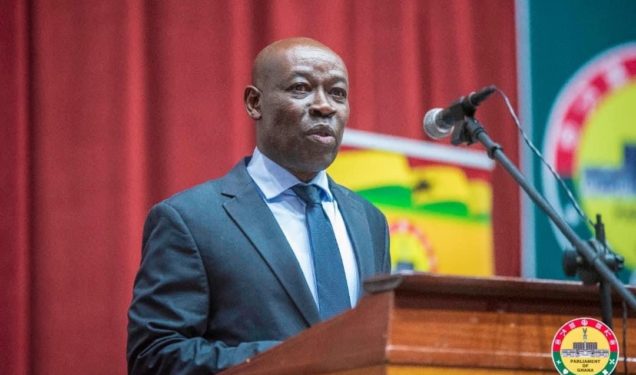JUDICIAL INDEPENDENCE OR JUDICIAL IMPUNITY [IMPUDENCE]

1. The Chief Justice has been removed from office. This is subject to any rights she may legitimately assert at law against her removal. I acknowledge that.
2. The earlier noises about her removal process being contrary to law, have evaporated because none of its proponents was honest enough to fight this case on behalf of the erstwhile Chief Justice. I am talking about the bodies and associations which raised those questions.
3. As it is over, I am just rethinking the whole process and the noises that accompanied it. Let’s start with some Q & A to put matters in context.
4. Q: Can the Chief Justice be removed from office?
5. A: Yes of course. This is clear from the combined provisions of article 146 clauses (6) to (10.
6. Q: On what grounds may the Chief Justice be removed from office?
7. A: The grounds are:
i. misbehaviour.
ii. incompetence and
iii. inability to perform their duties.
8. Q: On what grounds did Dan Ofori seek to remove the Chief Justice from office?
9. A: misbehaviour and incompetence.
10. Q: Is misbehaviour defined in the Constitution?
11. A: No it is not but not everything is defined in the Constitution. The law however, recognises the use of constitutional conventions and interpretation to give meaning to some of the words which are not defined in the Constitution.
12. Q: In this case, is there any guidance to find the meaning of “misbehavior” used in the Constitution?
13. A: Of course yes. This could be by interpretation. The law is the words used in the Constitution must be given their ordinary, grammatical or dictionary meaning unless applying the said meanings will lead to an absurdity. We can therefore resort to the dictionary to find the meaning of “misbehaviour”.
14. We can also find some guidance from the celebrated case of Agyei Twum v A-G & Akwetey – [2005-2006] SCGLR 682 which has been cited ad nauseam by all who have contributed to the matter. For example manipulating the justice system. It was thus held as follows:
“…the Chief Justice, … should not be seen to be MANIPULATING the justice system …. or … promoting the PROSTITUTION…of the system through meddlesome interference in the judicial work of the judges and thereby rendering the judges automations in the performance of the judicial responsibilities.” Per Asiamah JSC in Agyei Twum v A-G & Akwetey – [2005-2006] SCGLR 682 at page 811.
15. There have been accusations in the petition raising matters of the kind stated in the petition. I do not want to set out the petition. Even the report of the Committee set out some. Then it has also been held that:
“All in all, the provisions of the 1992 Constitution, including article 125(4) cannot be read as insulating the administrative head of the Judiciary from challenges against arbitrary, capricious, or ill-motivated administrative acts.” Per Prof Ocran JSC at page 791
16. The petition also contained several allegations of arbitrary and capricious behavior. The question therefore can only be whether the acts amount to “misbehaviour” within the meaning stated in the dictionary or not.
17. If we agree that it amounts to misbehaviour then the argument whether it is a BIG misbehaviour or a SMALL misbehaviour is a question to be determined by the Committee who are to advise the President on whether it suffices as a big or small misbehaviour to justify the CJ’s removal or otherwise. It does not lie in the mouth of anyone whoever they are do decide that.
18. The travel expenditure characterized by the Petitioner as “financial misappropriation” took its foundation from article 71 of the Constitution. The Petitioner’s case was that not being article 71 appointees, the Chief Justice’s spouse [like the President’s spouse] and her family cannot benefit from the privileges accorded the Chief Justice under article 71 of the Constitution.
19. Is a violation of the Constitution a small misbehaviour or a big one?
20. Q: In her decision in the Afenyo case, the CJ told the Rt. Hon Speaker how dangerous it is to violate the Constitution in one’s official actions and the consequences of such violation. That decision must give us a guidance on whether the infraction is big or small.
21. Q: Does the removal of the Chief Justice justify any conclusion that there is judicial interference?
22. A: No. This has been pronounced upon in the Agyei Twum case. It was held as follows:
“Moreover, the fact that it is the President who establishes a committee under article 146(6) to investigate an allegation that a Chief Justice has been guilty of such malfeasance of his administrative responsibilities as to bring him within the meaning of “stated misbehaviour” under article 146(1) does not necessarily imply executive interference in the affairs of the Judiciary.” Dr. Date- Bah JSC at page 776.
23. The argument that the CJ is not the Spending Officer of the Judiciary is the most nonsensical. The law says the CJ is the Account Holder in charge of ensuring that the funds in the account are spent in accordance with law. In any event, were Selormey, Peprah, Eugene Baffoe-Bonnie et al the Spending Officers of the funds of their various institutions?
25. No matter what noises were made, the law is the law, [the Rt. Hon speaker of parliament Alban Bagbin says, we must add another], “is the law” to make it complete.
26. To make the reading less cumbersome let me end here with the statement that it is completely fallacious to argue that:
“…that a Chief Justice’s conduct in the administration of the Judiciary can never ever be construed as a “stated misbehaviour” or “incompetence” within the meaning of article 146(1) of the Constitution.” Dr. Date-Bah JSC at page 775.
27. The above observations make it clear that the Constitution acknowledges judicial independence but does not tolerate impunity. I think there is a level of impudence that has seized some, let the Constitution whip them back in line.
Thank you for your attention.



